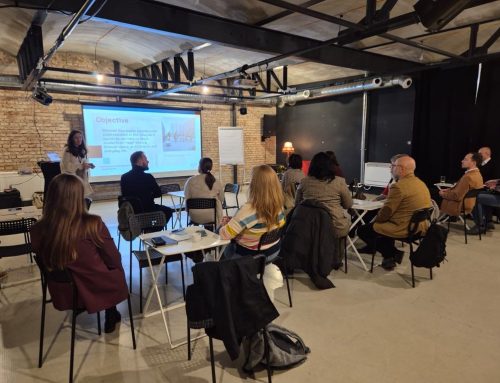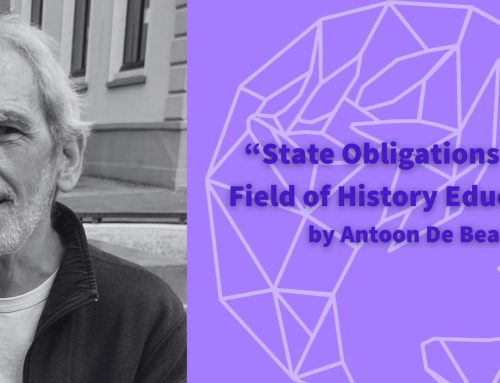Learning History that is not yet History II – Blogpost #1
The wars in the Balkans that marked the end of Yugoslavia are ever-present in the collective memory of the countries in the region. The highly sensitive and divisive events left behind their scars and influence societies that both include citizens who have lived the events, as well as the younger generation perceiving the wars as history. This blogpost is the first contribution to a series of blogs, dedicated to our project Learning History that is not yet History II (LHH2). The series will grant an insight into the project and an array of topics related to it, with contributions from the project partners and EuroClio.
Contributing to strengthening stability in the Balkans
The aim of Learning History that is not yet History II is to promote a pluralistic approach to teaching the 1990s Yugoslav wars. No topic is more sensitive or divisive in the Balkans, which makes teaching about this a challenge. We strive to offer a balanced view of the historical events that will lead to mutual understanding in the region, and will ultimately contribute to strengthening stability in the Balkans. However, this is not an overnight process. LHH2 is the embodiment of the special relationship between EuroClio and the region. EuroClio and its members have been working in the Balkans for more than 20 years, strengthening the capacity of the history teachers’ associations, developing workshops with and for local teachers, creating a repository for historical sources and creating resources about common regional history.
The crown on the work of years of trust building
All the results of these past efforts combined will help us create teaching materials which can be used in the classroom and provide teachers the resources to implement the materials as smoothly as possible. Through our previous experience working in the Balkans, and closely collaborating with project members throughout the whole region, trust was established between the people. This allowed us for a strong network to be created, along with the skills in making educational materials. Building this special relationship was crucial in order to tackle the sensitive topic of the 1990s wars. Our strong connections in the region serve as a foundation for the project and the time has arisen to create lessons about the Yugoslav wars. Conclusively, making the LHH2 project the crown on the work of years of trust building in the region.
Follow-up on the award-winning project and broadening the scope
The project is a follow up on the award-winning Learning History that is not yet History (LHH) project. Many steps have been made and successes achieved, and as a crowning of the work the LHH team was awarded the Global Pluralism Award 2019 by the Global Centre for Pluralism (GCP). LHH2 will continue the efforts in the Balkans and with the award money, we were able to get started with making lesson plans about the 1990s wars, developed by local educators from Bosnia, Croatia, Serbia and Montenegro. With additional support from the Dutch Ministry of Foreign Affairs, it was possible to bring all 7 countries on board. This considerably broadens the project’s scope to the dissolution of the 1990s. Multiperspectivity is imperative to tackling the 1990s wars and being able to include all 7 countries in the project, provided us the valuable partnership to do so.
The outputs of the project
Building on the results of its predecessor, the outputs of the projects will be 18 ready-to-use lesson plans. In order to safeguard multiperspectivity, the lesson plans will be made in cross-border teams. The themes of these lesson plans will yet be defined, depending on the needs and expertise of the authors. An additional Teacher’s Guide will similarly be part of the project’s outputs, equipping teachers with the accurate knowledge on how to smoothly implement the lesson plans. Teaching sensitive topics can be confrontational, therefore, themes such as dealing with emotions and controversies will be included in the Guide. Along with the lesson plans and Teacher’s Guide, LHH2 aims to reach as many teachers as possible in the region, to bring about the biggest impact. In order to achieve this, a new redesigned LHH2 website will act as a hub for the project initiative. To further promote the project and the activities in the Balkans, a promotional video will be made to give an insight into the project’s discussions and varying views and experiences of everyone involved in the project. Lastly, to complement this, local partners will launch a communication campaign to reach local stakeholders. This way, the mission of LHH2 to increase mutual understanding and strengthen stability in the Balkans will be broadened.













